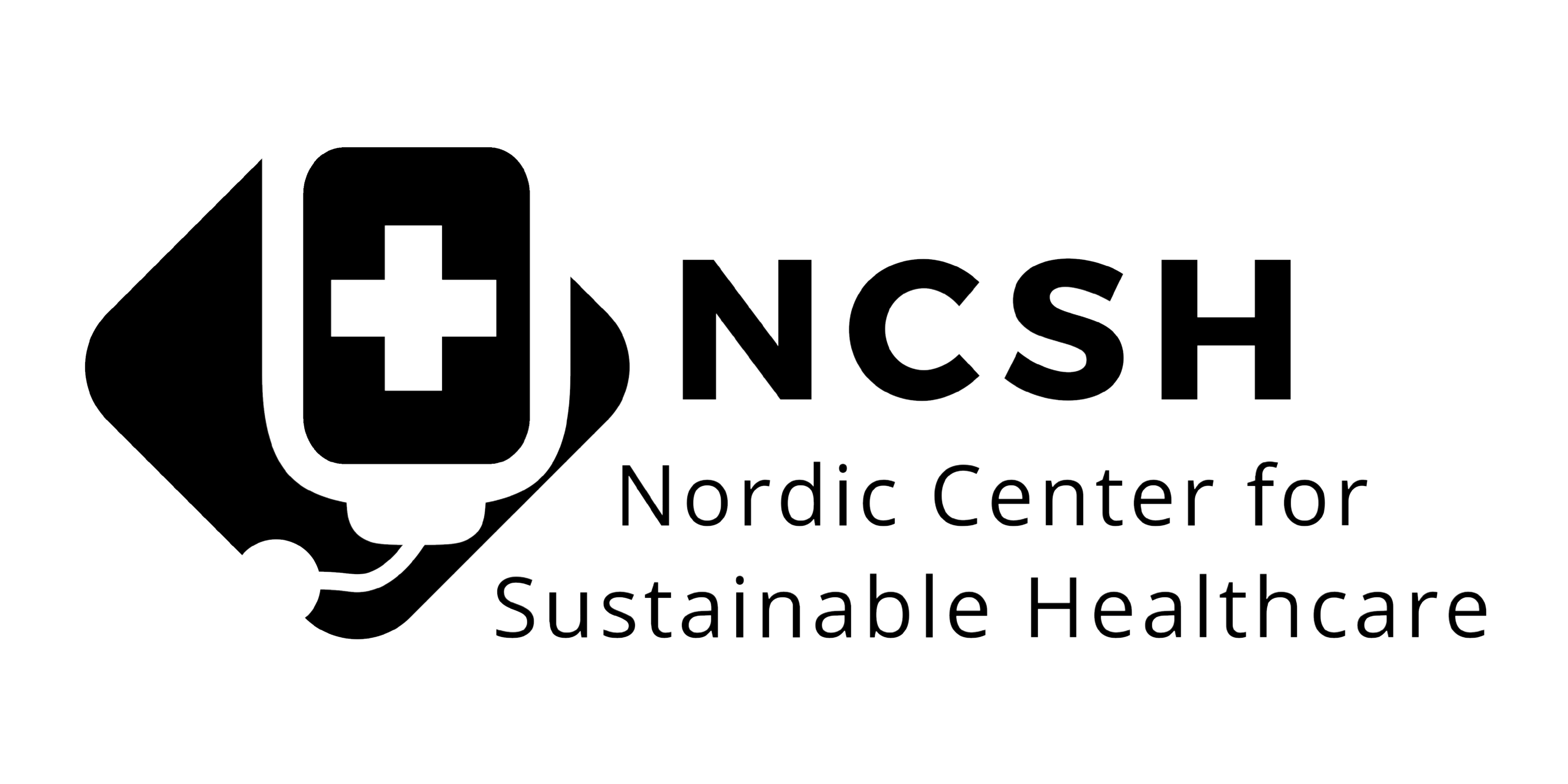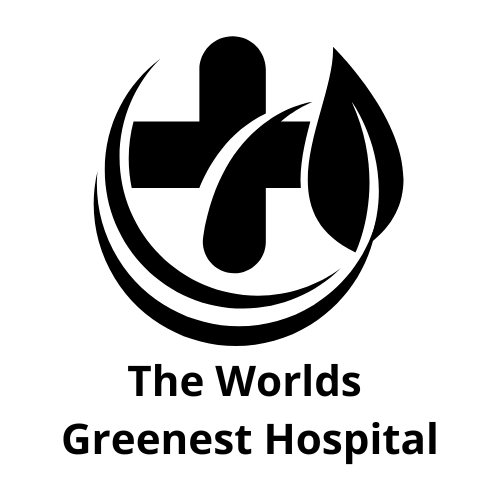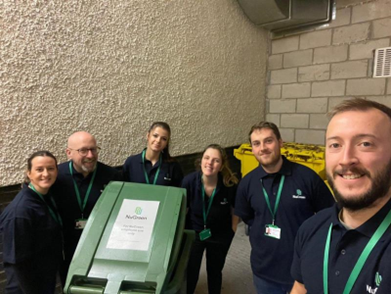Read about how our member NuGreen's recent healthcare waste audits are becoming crucial stepping stones towards net zero:
"Waste management within the NHS (National Health Service) is a complex area that has great potential to be an exemplar in sustainable initiatives as part of the organisation's carbon net zero journey.
Healthcare waste management is an area of high impact on scope 3 emissions, managed in a way that is designed to reduce the risk of infection and exposure to hazardous material. But is the current state of play really servicing healthcare as it should? Is the organisation's goal of being net zero by 2045 out of reach?
For some context in the UK, it is defined and legislated that infectious waste includes items such as soiled dressings, swabs, and medical devices. Waste of a similar nature, that is not infectious, but healthcare related is offensive waste. The classification of the waste has a huge bearing on how it is treated post-disposal.
At end of life, infectious waste is autoclaved before going through clinical incineration. This process, although effective in sterilisation, has a huge environmental impact even when the biproduct is used as energy from waste (EfW). A study has shown that the process emits an estimated 569kg CO2e/t waste. Offensive waste goes straight to municipal incineration, with an estimated footprint of 249kg CO2e/t waste.
The data from our recent internal study at a local NHS Trust tells us correct segregation of waste is largely unsuccessful. Approximately 36% of waste (per kg) was incorrectly segregated as infectious or offensive. Even when healthcare professionals navigate the confusion of waste classification guidelines in their high stress environment, patients and visitors lack awareness that different coloured bin liners are coded for their own unique waste stream.
Vast volumes of uncontaminated recyclable and general waste materials at the point of disposal (cardboard packaging, sterile plastic wrappings, food waste, etc.) are destined for incineration the second they are placed in the incorrect waste receptacle. General waste is not going to landfill (a less carbon intensive option compared to incineration), recyclable waste is diverted from material recovery infrastructure and unnecessarily high expenditure is being spent.
This is a double-edged sword.
This waste could have been converted into valuable waste to raw material resources that can be fed back into the supply chain, thus reducing the reliance on virgin materials. The high level of incineration of medical grade plastics and other textiles that can be potentially recycled goes against the circular economy philosophy that waste is simply a resource misplaced. Ordinary, household recyclable materials cannot be recovered either because of the contamination from food waste.
Unnecessary incineration also leads to elevated costs when waste disposal is already exorbitant. Infectious waste costs the NHS Trust we are auditing £0.50 per kg compared to £0.30 for offensive and £0.12 for general waste. This makes domestic waste 76% cheaper than infectious and 60% cheaper than offensive. If the misclassified waste was disposed of correctly, not only would it be lighter on the NHS's wallet and create a reduction in emissions, but the disposed items can also be given a new life when segregated. The resources within our economy can maintain value for longer.
Through our audit data we believe we can create great change. We believe in using data driven decisions and science-based targets with our partners to create and implement a path to a sustainable future. NuGreen takes a 4-stage approach resulting in a ranking on the NuGreen Standard where correct segregation and sustainable activity directly result in a score from our system showing the scale between best and worst practice and outlines activity required to drive towards a higher standard. In helping healthcare settings save money, reduce emissions, and increase the percentage of recycled material. This is what we are currently doing for our local NHS Trust.
Our Four Stage Approach is: COLLECT, ANALYSE, IMPLEMENT AND FUTUREPROOF.
- Collect: Through our contract with the NHS, we carried out an audit on their waste. We audited the infectious, offensive, and domestic waste from every department and ward in each hospital within the Trust to create the baseline data.
- Analyse: An analysis process then took place, deeply embedding our findings and the raw data into the recommendations we presented going forward. Our aim was to see what percentage of waste had been misclassified and incorrectly disposed of in a different waste stream. Out of 28,302 items we counted across all the wards, we found 14,151 to be misclassified. We found some key impact areas, such as vast quantities of medical packaging within infectious and offensive waste bins. Interrogating supply chain data and the utilisation of infrastructure such as sterile services and capital equipment efficiency to ensure facilities are able to be measured and evaluated. We can make change recommendations to streamline processes, manage data and interpret the sustainability credentials of the site in detail.
- Implement: From this we are designing change campaigns, training materials and education sessions on how to reduce the waste generated. The aim being that waste streams are managed more effectively with the environmental and economic benefits in mind. This will be encouraged by visuals and marketing materials to reinforce the Trust's goals and drive robust strategies for positive change. One simple recommendation being optimising bin locations and reducing opportunities to use an infectious or offensive bin to forge better habits.
- Futureproof: To ensure the strategies we have created are succeeding in meeting the Trust's targets, we will reaudit and review the same criteria again to assess the progress of the implementation stage. By comparing the results to the baseline data, we can tangibly track meaningful change and create quick interventions where necessary.
To conclude, the confusion in healthcare waste management is currently costing the NHS in emissions and expenditure but with right educational materials built on site specific, bespoke data driven decisions change is possible. Aligning to The NuGreen Standard represents an opportunity for sites to amend practices to generate more sustainable activity. We expect the data, assessment and futureproofed implementations from this audit and ones in the future will speak for itself."
Visit their website to learn more:
Not yet a member in the NCSH network? You can easily sign up here.
Image: NuGreen








